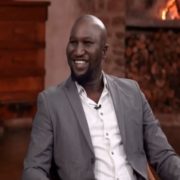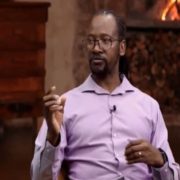EPISODE 3- The Smart Money Tribe Podcast
This episode of The Smart Money Tribe Podcast is about risk, return and due diligence.
If you’re the kind of person that is always looking for investments that offer high returns with zero risk, this is episode was made just for you.
Yeah, Arese has been shaking tables, and we know a lot of people are sitting on this particular one.
“ Most of us have heard the phrase no risk, no reward or high risk high return. But when it comes to making investment decisions, do we really understand what risk means?”
On this episode, Arese explains the concept of risk and shares strategies on how to manage risk.
Risks are a prediction of future outcomes, and nobody is ever 100% sure of what the future holds. So every investment bears some sort of risk, even the so called risk free ones.The next time someone tells you to bring 1 million and collect 2 million next week, claiming there’s no risk involved, just tell them not today. LOL.
In Arese’s words, “It’s clear that there’s no such thing as a risk-free investment because anything can happen and even a government can fail you. Anyway it’s important to note that although i think the government defaulting is unlikely, I’m saying this because we need to bear the risk in mind not dwell on it because if you don’t risk anything you don’t get anything”.
One of the keys to managing risk which Arese touches on is understanding your risk appetite. Discovering your risk appetite shouldn’t be based solely off of your emotions or the prospect of returns. It’s important to also consider the downside to the investment you’re making. You can do this by asking yourself questions like what the effect of a loss on that investment will mean to your finances.
She says, “considering how large your appetite for risk is, ask yourself, how does your life change if you bet wrong. So, does it affect your financial obligations is it your entire life savings that you’re risking in bitcoin or does it you know change your lifestyle does it change your cash flow”.
Furthermore, portfolio diversification is very crucial to managing risk and helps to spread your investments risks across several asset classes.
As a final point, due diligence is your responsibility as an investor and Arese touches on the need to conduct due diligence before investing. Research, research, research. And ask questions. Understand what you are putting your money into to avoid stories that touch.
Some of the key take aways from the podcast are:
1. Don’t invest in what you don’t understand.
2. Investment decisions shouldn’t be driven by emotions.
3. Do not put all your investment eggs in one basket.




